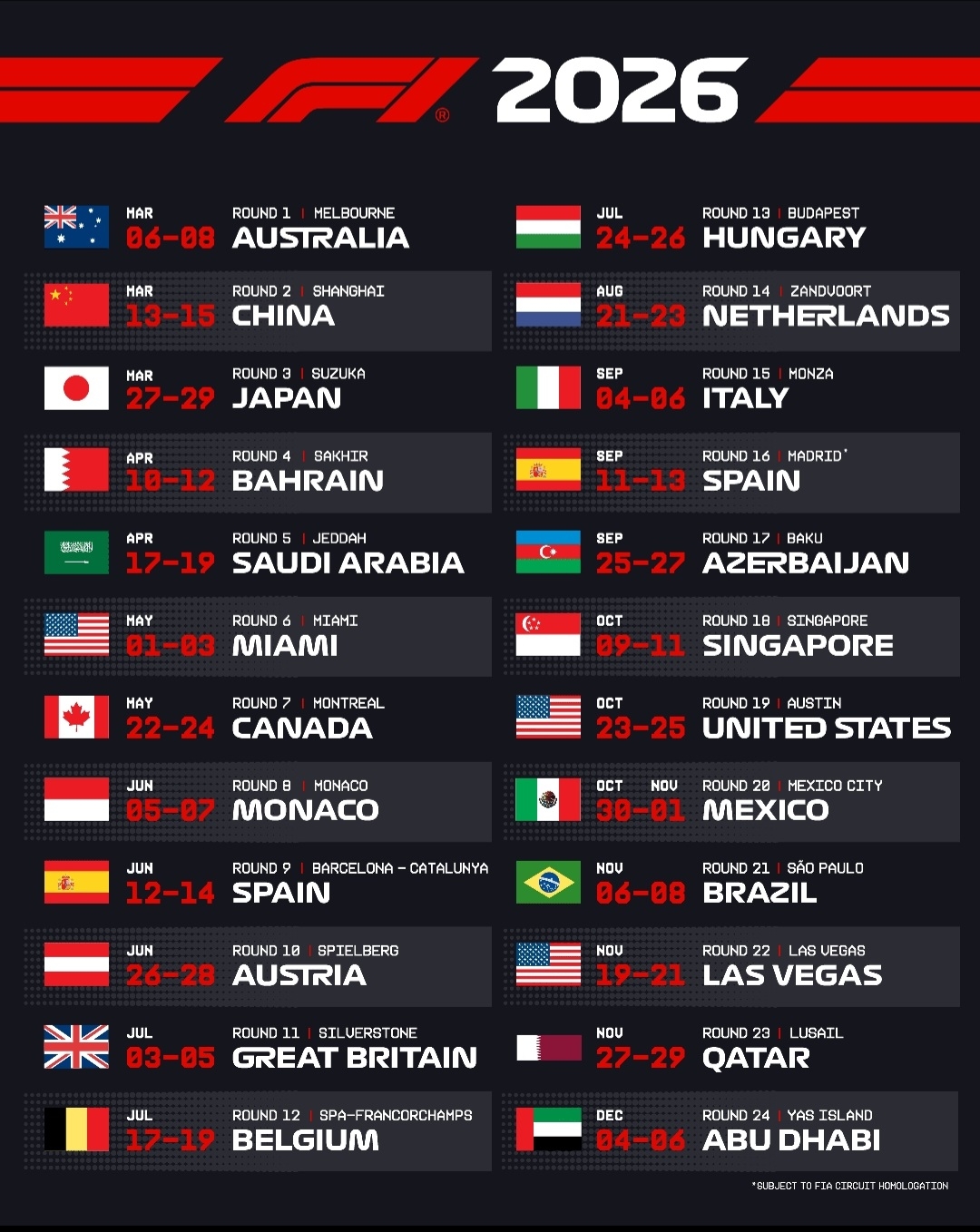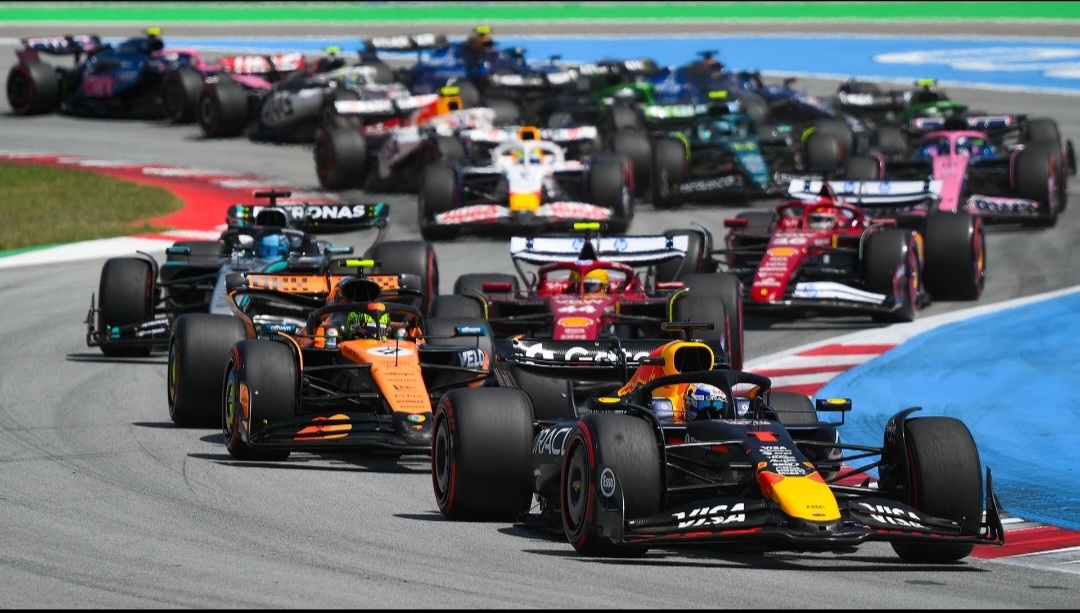Sourced: www.formula1.com
Madrid will host its first ever Formula One (F1) Grand Prix between the 11th and 13th of September 2026 replacing Barcelona as the primary Spanish race. The event will take place on a new 5.47km circuit around the IFEMA exhibition centre featuring a mix of street and permanent track sections. The move is part of F1’s effort to streamline logistics and reduce carbon emissions ensuring a more efficient European leg of the season.
The Emilia Romagna Grand Prix at Imola will not return in 2026 as the circuit failed to secure a contract renewal. Despite its historic significance, F1’s growing global expansion and the addition of Madrid meant Imola was left out of the 24 race schedule.
Season opener: The Australian Grand Prix kicks off the season in Melbourne from the 6th – 8th of March 2026
European leg: Begins with Monaco on the 5th-7th of June and ends with Madrid on the 11th -13th of September
Season finale: The Abu Dhabi Grand Prix will conclude the season at Yas Marina Circuit from the 4th -6th of December 2026
The Canadian Grand Prix has been rescheduled to the 22nd – 24th of May, immediately following the Miami Grand Prix. This change aims to streamline freight logistics allowing teams to move directly from Miami to Montreal instead of returning to Europe before heading back to North America. The adjustment is part of F1’s broader effort to reduce travel emissions and improve operational efficiency.
That the European leg of the season now runs uninterrupted, beginning with the Monaco Grand Prix (5th-7th of June) and concluding with Madrid (11th-13th of September). This structure minimises long haul travel ensuring a more sustainable race schedule while maintaining the traditional mid-season European focus.
The 2026 season features races across five continents, reinforcing F1’s commitment to global reach and sustainability. Key environmental measures include:
Biofuel-powered freight trucks for European races, reducing carbon emissions by 83%
Renewable energy infrastructure at circuits, cutting paddock emissions by 90%
Advances sustainable fuels in F1 cars aligning with the sport’s Net Zero Carbon by 2030 goal
Sourced: www.formula1.com
F1 is preparing for a major shift in car performance with 100% sustainable fuels set to reshape engine dynamics. While the full transition to new hybrid power units will occur next year in 2026, teams are already adapting to fuel consumption changes that aim to reduce carbon emissions while maintaining high-performance racing.
Formula Two and Formula Three have already switched to 100% advanced sustainable fuels, paving the way for F1’s adoption next season. The FIA has introduced stricter front wing flexibility tests limiting deflection allowances to prevent team from exploiting aero advantages. Hybrid systems are being refined to increase electrical output ensuring a more balanced power distribution between combustion and battery sources.
After a 20 year absence, Ford is returning to F1 as Red Bull’s engine partner replacing Honda in 2026. The collaboration will focus on hybrid power unit development, integrating advanced EV technology. Audi will officially join F1 in 2026 taking over Sauber’s operations and developing its own power unit.
The 2026 season will feature six sprint weekends, with Belgium replacing Austria as a sprint venue alongside China, Miami, Austin, Brazil and Qatar. Three official preseason tests will take place – two in Barcelona and one in Bahrain allowing teams to refine their setups before the season opener.






No comments:
Post a Comment